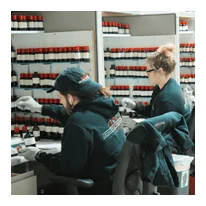What is IFRA?
Learn more down below of what IFRA means and what
it stands for
it stands for


What does ifra stand for?
IFRA, or the International Fragrance Association, is the largest regulatory body in the fragrance industry. They set guidelines for the safe use of fragrance in any product type that can be scented. IFRA works with the Research Institute of Fragrance Materials to determine what raw materials can be safely used at certain limits and remain safe for use. All of our fragrances are IFRA compliant and have downloadable reports documenting safe usage rates for different product types. Certain fragrances can be used at higher amounts in some products than others; for example, fragrances containing clove oil impart a lovely, warm scent to candles and air fresheners, but pose a risk of irritation when used in rinse-off and leave-on products like soap and lotion. It’s important to read and understand IFRA limits for any fragrance you use in your products
so you know you are including it at an amount that is safe for you and your customers.
so you know you are including it at an amount that is safe for you and your customers.
These are the values and beliefs
that IFRA operates under…
1. Safety and Consumer Protection: IFRA establishes and updates standards and guidelines for the safe use of fragrance ingredients in consumer products. These standards help ensure that fragrances are safe for consumers to use, minimizing the risk of adverse reactions or health issues.
2. Regulatory Compliance: IFRA’s standards and guidelines provide a framework for fragrance manufacturers to comply with various international regulations and laws. By following IFRA’s guidelines, manufacturers can demonstrate their commitment to product safety and regulatory compliance.
3. Industry Collaboration: IFRA facilitates collaboration and information sharing among its members, which include fragrance houses, raw material suppliers, and consumer product manufacturers. This collaboration promotes best practices, fosters innovation, and allows the industry to address challenges collectively.
4. Sustainability and Environmental Responsibility: IFRA promotes sustainability practices within the fragrance industry. They encourage the use of sustainable sourcing of raw materials, promote responsible production processes, and encourage the reduction of environmental impact throughout the fragrance supply chain.
5. Standards of Good Manufacturing Practice: IFRA’s Code of Practice establishes guidelines for good manufacturing practices in the fragrance industry. These standards cover aspects such as production, quality control, labeling, and documentation. By adhering to these standards, fragrance manufacturers can ensure the consistency, quality, and integrity of their products.






